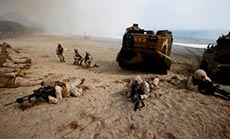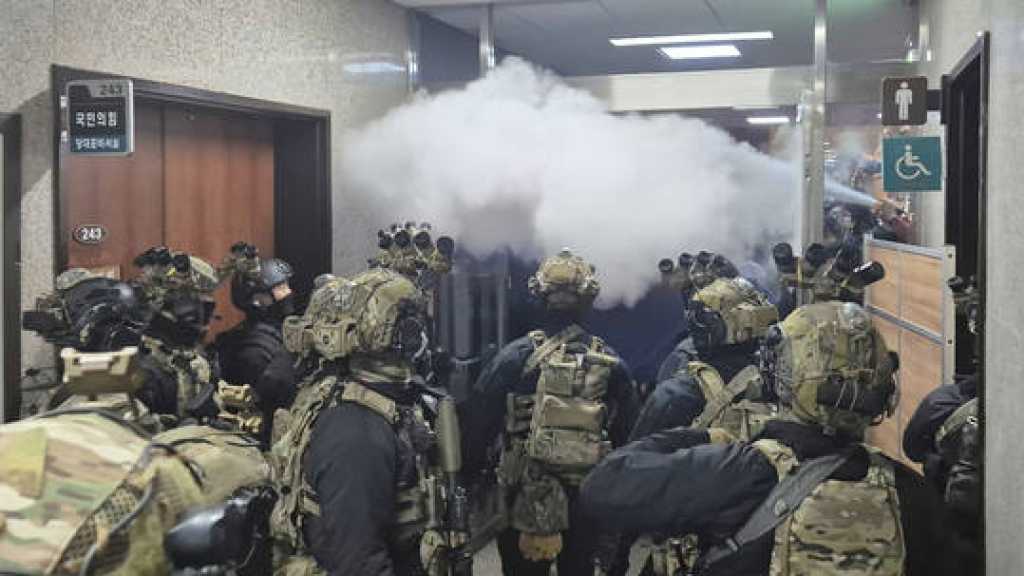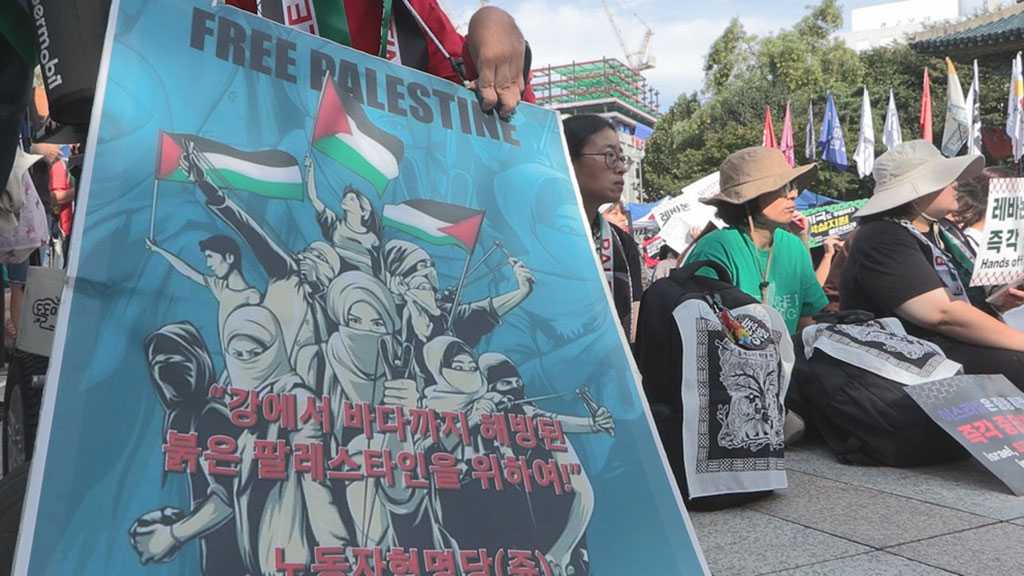Tension Escalates as Two Koreas Trade Fire across Maritime Border

Local Editor
North and South Korea traded fire across their disputed maritime border on Monday, with the South's military saying it had responded to shells landing in its waters from a North live-fire drill.
 "Some of the shells fired by North Korea dropped in our area and our side responded with fire," a spokesman for the South Korean Joint Chiefs of Staff said.
"Some of the shells fired by North Korea dropped in our area and our side responded with fire," a spokesman for the South Korean Joint Chiefs of Staff said.
There was no indication that either side was firing at any particular target.
On South-Korea-controlled Baengnyeong island, close to the maritime boundary, officials said residents had been taken to shelters as a precaution.
"We are urging all residents to evacuate to shelters right now, and some have already done so," a town hall official on the island clarified.
A spokesman from the South stated that "For the moment, both sides are firing into the sea."
North Korea regularly conducts live-fire drills but, in an unusual move, it had notified the South of Monday's exercise in advance.
The South Korean Joint Chiefs of Staff had immediately warned it would respond in the event of any shells falling on its side of the border.
The Yellow Sea boundary is an extremely sensitive region that has been the scene of brief but bloody clashes in the past.
"The aim is to threaten us and rack up tension on the Yellow Sea border and the overall Korean peninsula," South Korean Defense Ministry spokesman Wi Yong-Seop told reporters before the North Korean drill began."The fact that they sent a message to us indicates their hostile intention," Wi said.
The exchange of fire came a day after North Korea threatened to carry out a "new form" of nuclear test -- seen as a possible reference to efforts to build a nuclear warhead small enough to fit on a ballistic missile.
The de-facto maritime boundary between the two Koreas - the Northern Limit Line - is not recognized by Pyongyang, which argues it was unilaterally drawn by US-led United Nations forces after the 1950-53 Korean War.
Both sides complain of frequent incursions by the other and these resulted in limited naval clashes in 1999, 2002 and 2009.
North-South tensions have been rising for weeks, undermining hopes raised after the North in February hosted the first reunion for more than three years of families separated by the 1950-53 war.
Source: News Agencies, Edited by website team
Comments
- Related News

South Korea’s Ruling Party Chief Steps down
30 days ago


